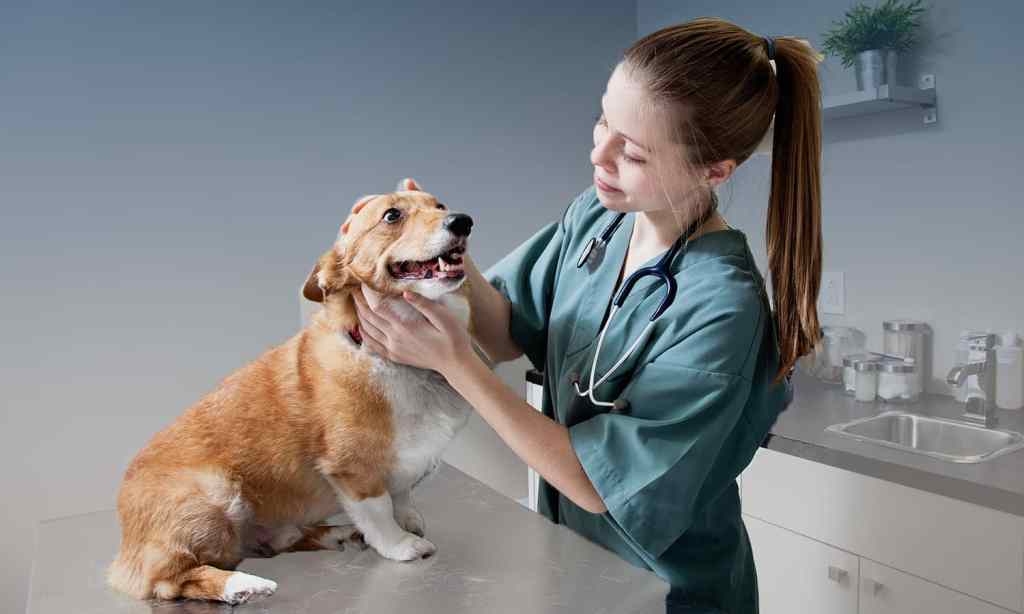Warning: this article deals with the topic of suicide and may be triggering for some readers.
Vets are some of the best people in the world. They go into the profession to save our best friends, keep them healthy, and help them out when they get their heads stuck in things or eat something they shouldn’t have.
This is why it’s sad to know that veterinarians are leaving the job at an alarming rate. The stress and demands of the role take a huge toll and vets are tragically four times more likely than the general population to take their own lives.
Because of this, and despite the huge intake of veterinarians to study the practice at university, Australia is facing a shortage of vets.
Dr Riley from James Cook University says that about 400 people apply to study a Bachelor of veterinary science at James Cook University every year, with 100 accepted into the course with a completion rate of 90 percent.
Being a veterinarian means being highly likely to experience poor mental health associated with compassion fatigue. Compassion Fatigue is a state experienced by those helping people or animals in distress; it is an extreme state of tension and preoccupation with the suffering of those being helped, to the degree that it can create secondary traumatic stress for the helper.
Moreover, many of the everyday demands of the profession compound mental health issues further. Some of these include the long hours required of the job, dealing with staffing shortages — which affect the ability of vets to take adequate time off and maintain a work-life balance — managing client expectations and the financial limitations which can impact the level of treatment which can be provided to patients. Vets, sadly, also have to deal with abuse from clients.
It is something that I have experienced first-hand as a vet. Oftentimes, as vets, we will witness clients unwilling to pay for care for their pet when they clearly require veterinary intervention. This impacts our mental health because we understand what the health implications are for that animal whose owner has turned away care that will help improve their quality of life.
So what is being done to help vets? Morgan Coleman, founder and CEO of tech start-up, Vets On Call is disrupting the traditional business model by facilitating in-home veterinary care via a mobile app on your phone.
This move has led to better mental health outcomes for vets and their work life balance.
“Our vets are able to choose their own work hours and locations,” Coleman said.
“Additionally, we’ve employed many female vets who were forced out of the career altogether after having children who have been able to come back to a career they love on a part-time basis.”
The Australian Veterinary Association (AVA) has implemented a range of VetHealth initiatives to support veterinary mental health and wellbeing too.
This includes access for veterinarians to the AVA’s confidential counselling service, an HR Advisory service, and seminars around resilience, wellness and mental health.
The AVA’s Mental Health First Aid Training program assists veterinary practice staff in identifying employees who may be experiencing mental health issues and helps them know how to offer assistance. The AVA’s Graduate Mentoring Program pairs newly graduating veterinarians with an experienced colleague in another practice to provide support.
While these measures are welcomed, Coleman says that more needs to be done to train those studying veterinary medicine in managing the emotional and psychological components of veterinary work and educating the general public about the work vets do.
“At Vets On Call, we recognise that the wellbeing of our vets is as much a part of their success as client satisfaction. Ensuring vets have an arsenal of tools to deal with the demands of the job has to be a priority,” Coleman explained.
How Can Pet Owners Support Vets?
There are a number of things you can do to help and support your vet:
1. Be mindful that while you are dealing with the anxiety of your own pets pain, your consulting vet may be dealing with many more throughout the day.
2. Always remain courteous and sensitive to the fact that your vet may have had to perform lifesaving or emergency treatment to another pet, or even worse, may have just had to euthanise someone’s beloved animal.
3. Use the Vets on Call app, a full-service veterinary provider that delivers veterinary services to peoples homes.
If this article has raised any concerns for you, or to access further support please contact: Lifeline on 13 11 14, or Beyond Blue on 1300 224 636.
Vets on Call is a full service veterinary provider using a custom built mobile app to deliver veterinary services into people’s homes.
Read more stories from The Latch and subscribe to our email newsletter.







